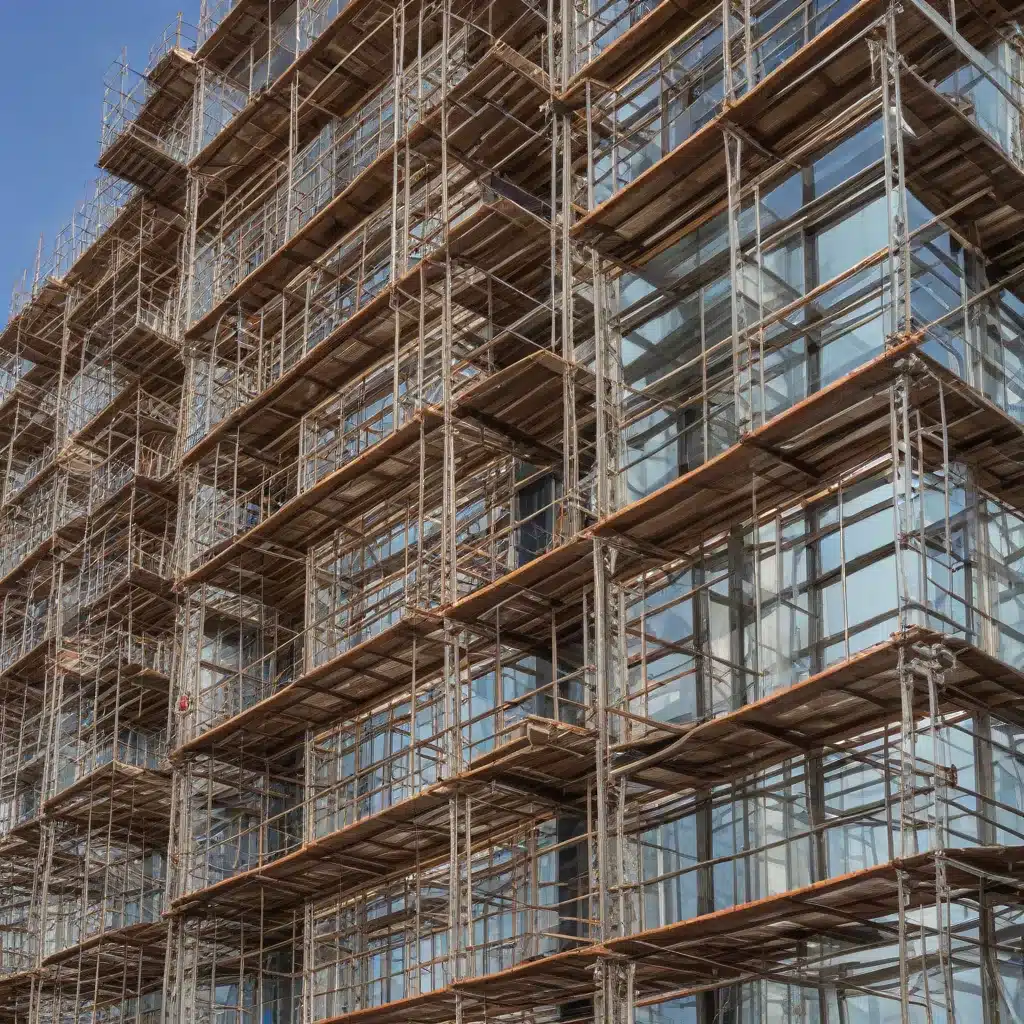
Upholding Safety Standards: The Significance of Scaffolding Certification
In the ever-evolving construction industry of the United Arab Emirates (UAE), ensuring the safety and efficiency of scaffolding operations is of paramount importance. Scaffolding, the temporary structures that support workers and materials during building and renovation projects, play a crucial role in the successful execution of construction endeavors. However, the inherent risks associated with working at heights necessitate a robust framework of training, certification, and regulatory compliance.
The UAE has implemented stringent guidelines to safeguard the well-being of construction workers and the general public. The UAE Construction Safety Regulations, updated in September 2024, mandate that all scaffolding supervisors and operators must hold the appropriate certifications to oversee and execute these critical tasks.
One of the most recognized and respected certification programs in the region is the Construction Industry Scaffolders Record Scheme (CISRS), administered by the National Access & Scaffolding Confederation (NASC). The CISRS Operative Training Scheme (OSTS) card is a testament to an individual’s competence in the safe erection, alteration, and dismantling of scaffolding structures.
To obtain a CISRS OSTS card, scaffolding professionals in the UAE must undergo comprehensive training and assessment, covering both theoretical knowledge and practical skills. This rigorous program ensures that scaffolders possess the necessary expertise to navigate the unique challenges and regulations within the local construction landscape.
In addition to the CISRS OSTS certification, the UAE also recognizes the Prefabricated Access Suppliers and Manufacturers Association (PASMA) Mobile Access Tower training as a vital qualification for workers involved in the use of mobile access towers. This specialized certification equips participants with the skills to safely erect, use, and dismantle these versatile scaffolding solutions.
Navigating the UAE Scaffolding Landscape: Regulatory Compliance and Cost Considerations
The UAE’s commitment to construction safety is further evidenced by the strict enforcement of regulations governing scaffolding practices. The UAE Occupational Health and Safety Law, updated in 2023, outlines comprehensive guidelines for scaffolding operations, including requirements for:
- Scaffolding design and structural integrity
- Inspection and maintenance protocols
- Training and competency of scaffolding personnel
- Adherence to load-bearing capacities and safety factors
Compliance with these regulations is not only a legal necessity but also a moral imperative to ensure the well-being of workers and the public. Failure to adhere to these standards can result in significant fines, project delays, and, in the worst-case scenarios, tragic incidents that can have devastating consequences.
While upholding safety standards is the primary concern, construction companies in the UAE must also navigate the financial implications of scaffolding solutions. The cost of scaffolding can vary widely depending on factors such as the project’s scale, the complexity of the structure, and the type of scaffolding materials used.
On average, the cost of scaffolding in the UAE can range from $10 to $25 per square meter per month, with more specialized or complex systems falling on the higher end of the spectrum. It is essential for construction managers to carefully evaluate the potential cost savings associated with innovative scaffolding techniques, such as modular or prefabricated systems, which can offer enhanced efficiency and reduced setup times.
Furthermore, the implementation of comprehensive training programs and the adherence to safety protocols can have a positive impact on the overall project budget. By minimizing the risk of accidents, construction companies can avoid the costly consequences of workplace injuries, equipment damage, and project delays.
Embracing Innovation: Advancing Scaffolding Practices in the UAE
As the construction industry in the UAE continues to evolve, the demand for innovative and efficient scaffolding solutions has grown exponentially. Contractors and project managers are increasingly seeking out advanced scaffolding technologies and techniques that not only enhance safety but also improve productivity and cost-effectiveness.
One such innovative approach gaining traction in the UAE is the use of modular or prefabricated scaffolding systems. These versatile solutions, often made of lightweight aluminum or steel components, can be quickly assembled and disassembled, reducing installation times and labor costs. Additionally, the modular design allows for greater flexibility in adapting the scaffolding to the unique requirements of each construction project.
Another area of innovation in the UAE’s scaffolding industry is the adoption of digital tools and technologies. Sophisticated scaffolding management software, for instance, can streamline the planning, deployment, and monitoring of scaffolding structures, providing real-time data on safety inspections, maintenance schedules, and material inventory.
Furthermore, the integration of Building Information Modeling (BIM) into the scaffolding design process has enabled construction professionals to visualize and simulate the placement of scaffolding components, optimizing the overall efficiency and safety of the project.
These advancements in scaffolding practices not only contribute to enhanced worker safety but also support the UAE’s broader sustainability goals. By reducing material waste, minimizing energy consumption, and optimizing resource utilization, construction companies can significantly improve the environmental impact of their projects.
Conclusion: Embracing the Future of Scaffolding in the UAE
The scaffolding industry in the UAE has undergone a remarkable transformation, driven by the unwavering commitment to safety, compliance, and cost-effective solutions. As the construction landscape continues to evolve, the importance of upholding rigorous training and certification standards, adhering to regulatory frameworks, and embracing innovative scaffolding techniques has never been more paramount.
By prioritizing the well-being of workers, the general public, and the environment, construction companies in the UAE are setting a new benchmark for the industry. Through the seamless integration of advanced scaffolding technologies, comprehensive safety protocols, and cost-efficient practices, the UAE is poised to lead the way in sustainable and responsible construction.
As the UAE continues to redefine the future of its built environment, the scaffolding industry plays a crucial role in supporting this vision. By maintaining a steadfast commitment to safety, compliance, and innovation, construction professionals in the UAE can ensure the successful and sustainable execution of their projects, ultimately contributing to the nation’s continued progress and prosperity.
To learn more about our comprehensive scaffolding services and solutions, visit Sher Ahmed Scaffolding, a trusted leader in the UAE’s construction industry.
